第14章 LETTER 3(4)
This use,my lord,which I make the proper and principal use of the study of history,is not insisted on by those who have written concerning the method to be followed in this study:and since we propose different ends,we must of course take different ways.Few of their treatises have fallen into my hands:one,the method of Bodin,a man famous in his time,I remember to have read.I took it up with much expectation many years ago;I went through it,and remained extremely disappointed.He might have given almost any other title to his book as properly as that which stands before it.There are not many pages in it that relate any more to his subject than a tedious fifth chapter,wherein he accounts for the characters of nations according to their positions on the globe,and according to the influence of the stars;and assures his reader that nothing can be more necessary than such a disquisition;"ad universam historiarum cognitionem,et incorruptum earum judicium."In his method,we are to take first a general view of universal history,and chronology,in short abstracts,and then to study all particular histories and systems.Seneca speaks of men who spend their whole lives in learning how to act in life,"dum vitae instrumenta conquirunt."I doubt that this method of Bodin would conduct us in the same,or as bad a way;would leave us no time for action,or would make us unfit for it.A huge common-place book,wherein all the remarkable sayings and facts that we find in history are to be registered,may enable a man to talk or write like Bodin,but will never make him a better man,nor enable him to promote,like an useful citizen,the security,the peace,the welfare,or the grandeur of the community to which he belongs.I shall proceed therefore to speak of a method that leads to such purposes as these directly and certainly,without any regard to the methods that have been prescribed by others.
I think then we must be on our guard against this very affectation of learning,and this very wantonness of curiosity,which the examples and precepts we commonly meet with are calculated to flatter and indulge.We must neither dwell too long in the dark,nor wander about till we lose our way in the light.We are too apt to carry systems of philosophy beyond all our ideas,and systems of history beyond all our memorials.The philosopher begins with reason,and ends with imagination.The historian inverts this order:he begins without memorials,and he sometimes ends with them.This silly custom is so prevalent among men of letters who apply themselves to the study of history,and lias so much prejudice and so much authority on the side of it,that your lordship must give me leave to speak a little more particularly and plainly than I have done,in favor of common sense against an absurdity which is almost sanctified.
Reflections on the State of Ancient History The nature of man,and the constant course of human affairs,render it impossible that the first ages of any new nation which forms itself,should afford authentic materials for history.We have none such concerning the originals of any of those nations that actually subsist,Shall we expect to find them concerning the originals of nations dispersed,or extinguished,two or three thousand years ago?If a thread of dark and uncertain traditions,therefore,is made,as it commonly is,the introduction to history,we should touch it lightly,and run swiftly over it,far from insisting on it,either as authors or readers.Such introductions are at best no more than fanciful preludes,that try the instruments,and precede the concert.He must be void of judgment,and taste,one would think,who can take the first for true history,or the last for true harmony.And yet so it has been,and so it is,not in Germany and Holland alone;but in Italy,in France,and in England,where genius has abounded,and taste has been long refined.Our great scholars have dealt and deal in fables at least as much as our poets,with this difference to the disadvantage of the former,to whom I may apply the remarks as justly as Seneca applied it to the dialecticians --"tristius inepti sunt.
Illi ex professio lasciviunt;hi agere seipsos aliquid existimant,"Learned men,in learned and inquisitive ages,who possessed many advantages that we have not,and among others that of being placed so many centuries nearer the original truths that are the objects of so much laborious search,despaired of finding them,and gave fair warning to posterity,if posterity would have taken it.The ancient geographers,as Plutarch says in the life of Theseus,when they laid down in their maps the little extent of sea and land that was known to them,left great spaces void.In some of these spaces they wrote,Here are sandy deserts,in others,Here are impassable marshes,Here is a chain of inhospitable mountains,or Here is a frozen ocean.Just so both he and other historians,when they related fabulous originals,were not wanting to set out the bounds beyond which there was neither history nor chronology.Censorinus has preserved the distinction of three eras established by Varro.This learned Roman antiquary did not determine whether the first period had any beginning,but fixed the end of it at the first,that is,according to him,the Ogygian,deluge;which he placed,I think,some centuries more backward than Julius Africanus thought fit to place it afterwards.To this era of absolute darkness he supposed that a kind of twilight succeeded,from the Ogygian deluge to the Olympic era,and this he called the fabulous age.From this vulgar era when Coraebus was crowned victor,and long after the true era when these games were instituted by Iphitus,the Greeks pretend to be able to digest their history with some order,clearness,and certainty.